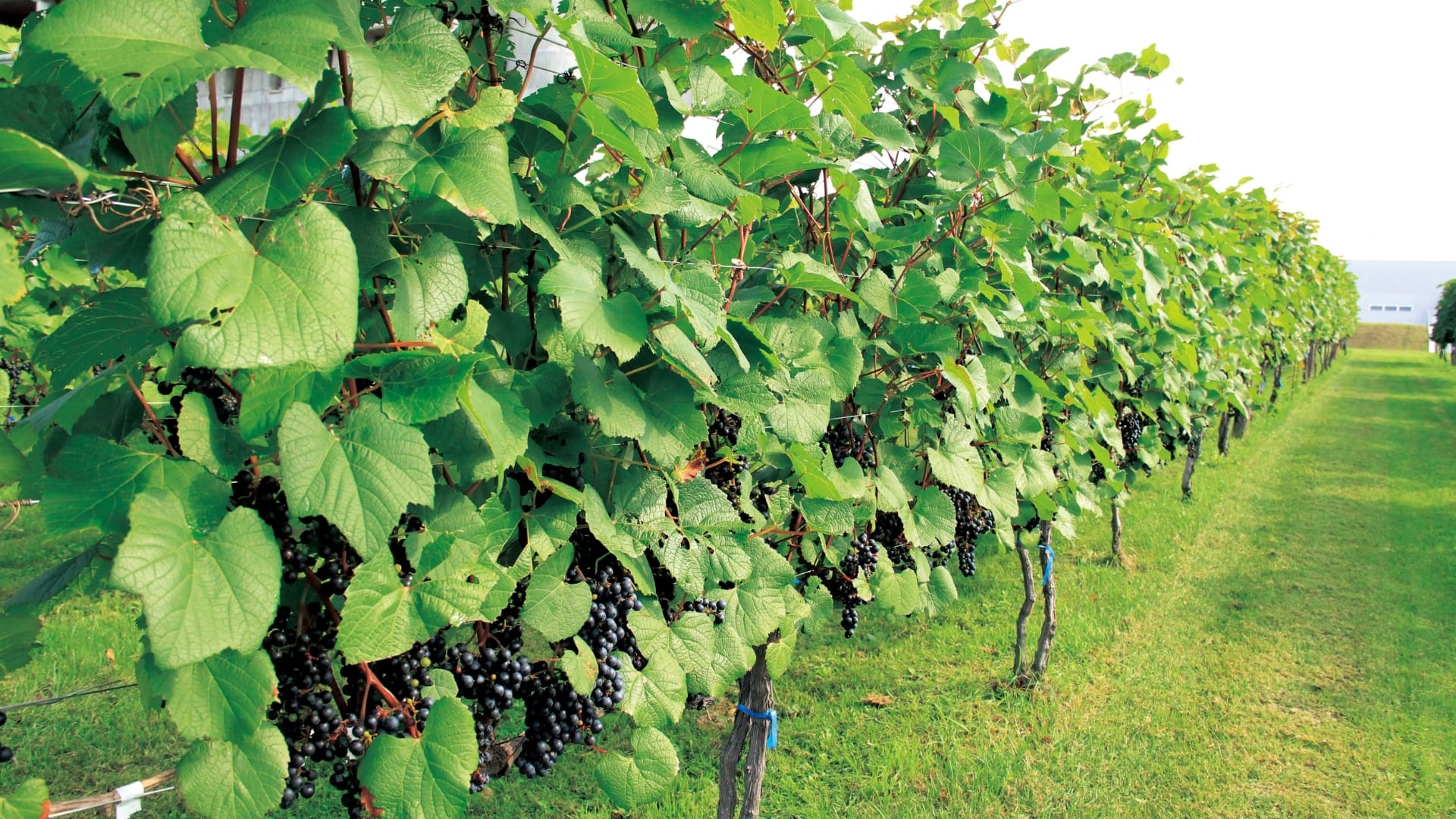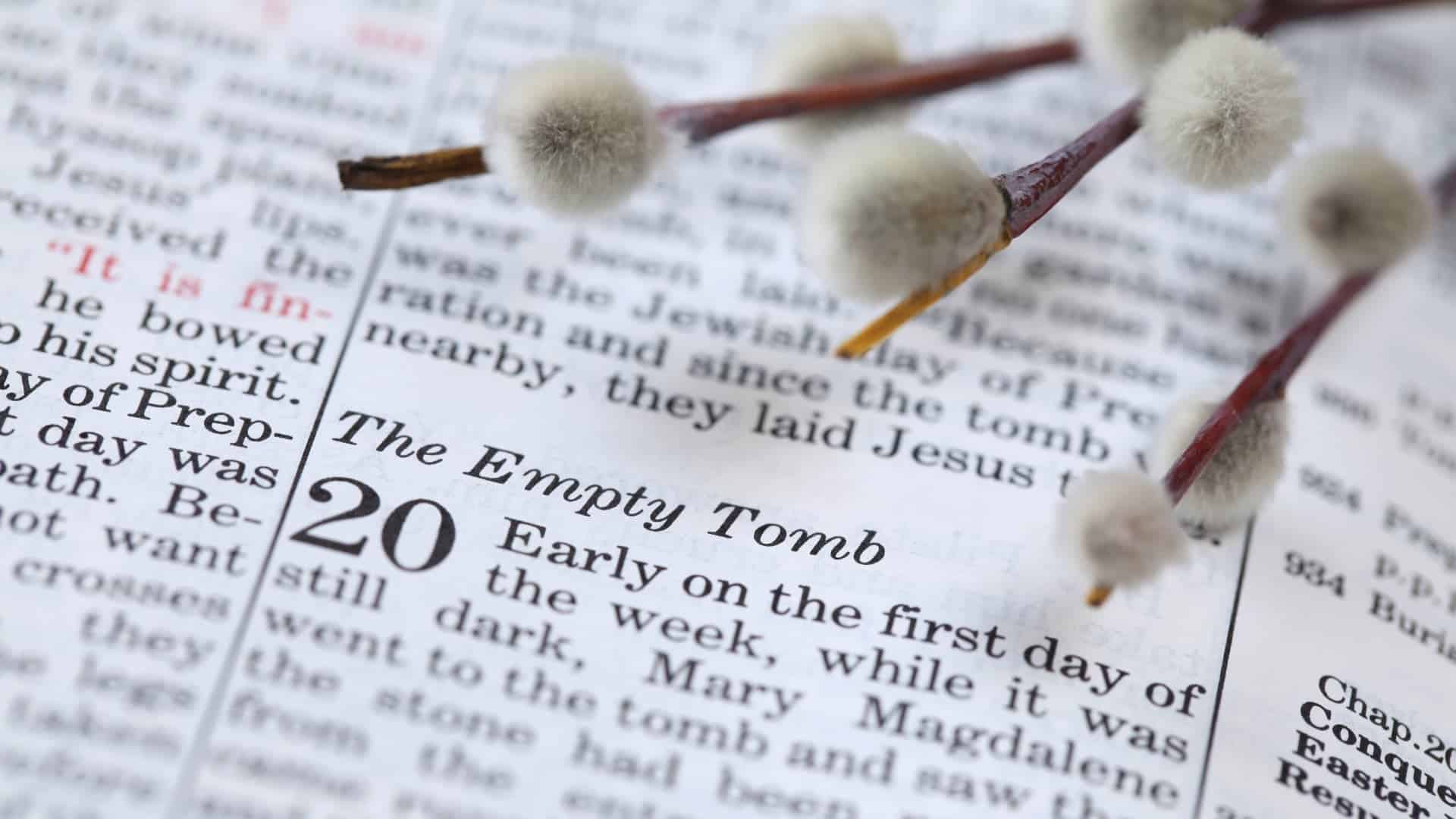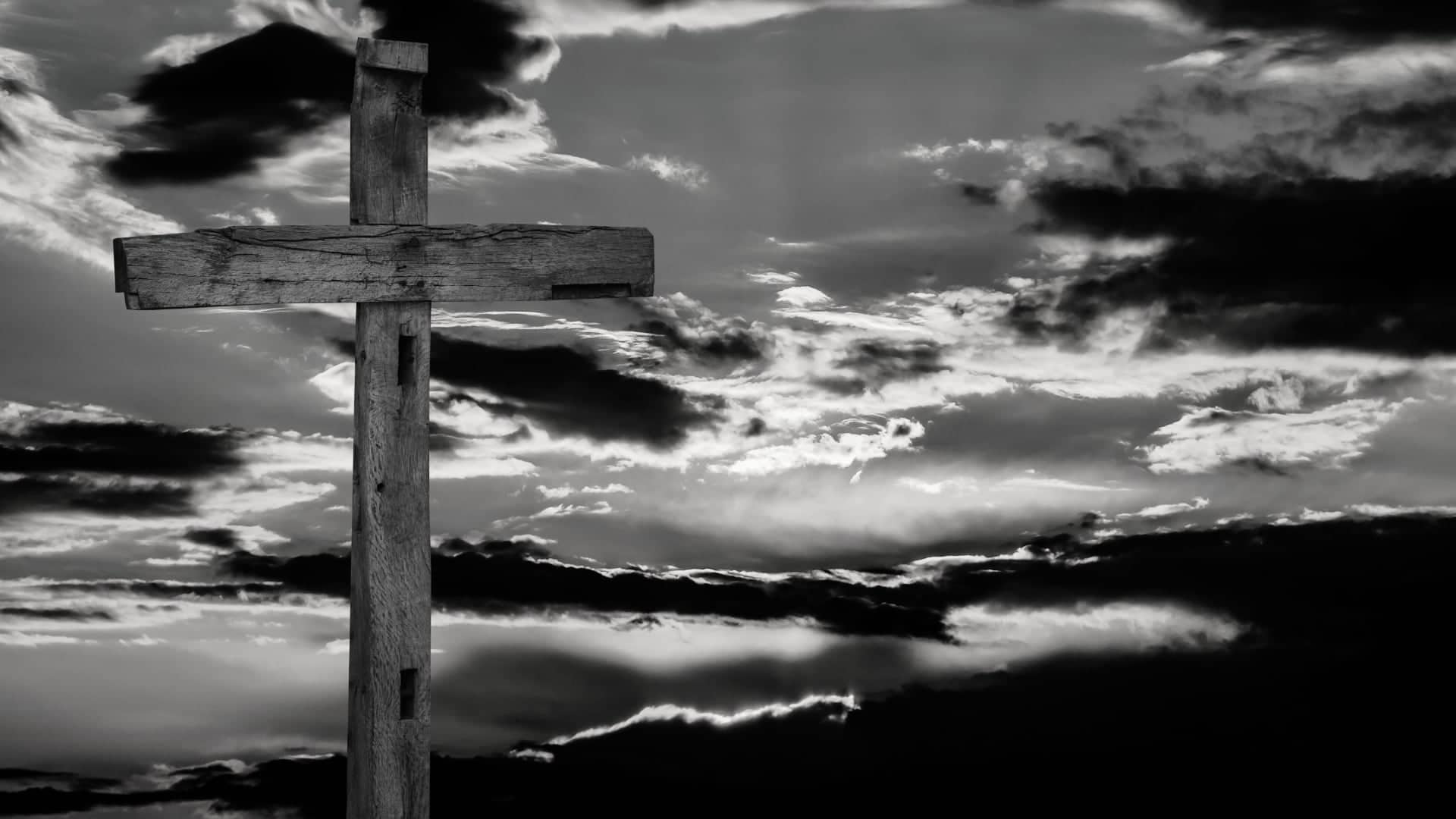Abide in Me (John 15:1-8)

Dr. David A. Dunning, professor of social psychology, was fascinated to read a story of a bank robbery that took place in Pittsburgh. The robber, a 5 foot 6 inch man weighing some 270 pounds, walked into two banks in broad daylight and attempted to rob them. He made no attempt to disguise himself.
Within hours of the robberies, police found him. He was easily identified from the surveillance tapes. Nevertheless, he was shocked. “But I wore the juice!” he said to the arresting officers. It turns out that before the robberies he smeared his face with lemon juice. It caused his face to burn, and he had difficulty seeing, but he was under the impression that smearing lemon juice on his face would render him invisible to the camera. He had tested this at home with a Polaroid camera and it had seemingly worked. It’s more likely, of course, that the film was bad, or that he simply didn’t point the camera in the right direction because of the lemon juice in his eyes.
In any case, this lead to Dr. Dunning, the professor of social psychology, writing a report called “Unskilled and Unaware of It: How Difficulties of Recognizing One’s Own Incompetence Lead to Inflated Self-assessments.” How would you like to be the person who inspired a study like that? Dr. Dunning writes, “Not only do [incompetent people] reach erroneous conclusions and make unfortunate choices, but their incompetence robs them of their ability to realize it.”
This morning I’d like to suggest that we are all in danger of not only being spiritually incompetent, but also of being unaware of our condition. It’s bad enough to be spiritually incompetent, but the problem is even greater than this. It’s like we’re surprised by our spiritual incompetence. We’re wearing the juice, so to speak.
This applies to us individually. We are completely unable to produce the kind of changes in our lives that need to take place. But this is also true of us as a church. We want to make a difference in the lives of those who are part of Richview. We want to make a difference in the community. But we’re spiritually incompetent and we don’t even realize it.
The passage we read this morning speaks to this issue. It’s the night before Jesus dies. Jesus is meeting with his disciples in what’s called the Farewell Discourse. He’s preparing them for what lies ahead, not only the next day, but in the future when he’s ascended to heaven. In this passage Jesus deals with the issue of our spiritual incompetence – our inability to produce fruit on our own. He helps us to grasp three things: that he is the true vine; what the Father is up to; and finally, what we need to do as a result.
So let’s first look at verse 1 and see:
Jesus is the true vine.
In John 15:1, Jesus says, “I am the true vine.” I think I’ve read this verse dozens, maybe hundreds of times. Most of the time I’ve read, “I am the vine,” which is actually what verse 5 says. I’ve usually missed the word true in verse 1. It’s a significant word.
The disciples would have known the Old Testament very well. They would have known that one of the main images used of Israel, the covenant people of God, was the vine. If you had asked them, “Who is the vine?” they would have answered, “Israel is the vine.”
For instance, you may have thought of Psalm 80:8-9, which says:
You brought a vine out of Egypt;
you drove out the nations and planted it.
You cleared the ground for it;
it took deep root and filled the land.
Or you may have thought of the prophets, who frequently spoke of Israel as a vine or a vineyard. You’d recall the words of Hosea 10:1:
Israel is a luxuriant vine
that yields its fruit.
The more his fruit increased,
the more altars he built…
Or Isaiah 5:1-2:
Let me sing for my beloved
my love song concerning his vineyard:
My beloved had a vineyard
on a very fertile hill.
He dug it and cleared it of stones,
and planted it with choice vines;
he built a watchtower in the midst of it,
and hewed out a wine vat in it;
and he looked for it to yield grapes,
but it yielded wild grapes.
That would have reminded you of the chilling words spoken by Ezekiel, who said:
Therefore thus says the Lord GOD: Like the wood of the vine among the trees of the forest, which I have given to the fire for fuel, so have I given up the inhabitants of Jerusalem…
If you had been one of the disciples, you would have known that Israel is the vine. But it hadn’t been a very good vine. It had produced wild fruit. It had not produced the kind of fruit that God had expected. It had failed in its assignment, and God had spoken in judgment against it.
But then Jesus comes along and says, “I am the true vine.” Jesus is the true and better vine. He produces the fruit that the people of God failed to produce on their own. Where God’s people failed, Jesus has succeeded. He is the true and better vine that has produced the fruit we should have produced all along.
What does this mean for us? Two things. First: to be connected with God previously, you had to be connected, through faith, with Israel, God’s covenant community. They were the vine, and you had to be connected with Israel to be connected with God. Now, Jesus is claiming that if you want to be connected with God, you need to be connected with him. He is the true and better Israel. He is the one through whom we find our connection with God.
But it also means that we see Jesus as the one who has done for us what we couldn’t do for ourselves. It’s right and important to remember that Jesus died for us. But we also need to remember that Jesus lived the life that we couldn’t live. He produced the righteousness that we couldn’t produce for ourselves.
Really what it means is that we don’t look to ourselves to produce the spiritual life that we need. We can’t produce what God expects. But Jesus says that he is the true vine. He is the one in whom we find life. Instead of looking to ourselves, we look to him.
So we see in this passage that Jesus is the true vine.
We also see what God is doing in the world.
John 15:1 says, “I am the true vine, and my Father is the vinedresser.” This is a continuation of the image, but it’s more. It’s also a snapshot of what God is doing in the world. God is the author of life. Right from Genesis 1 we see that God is the creator of life. Here the image is of God cultivating life in this world, and he’s doing it through Jesus. We’re going to see in a minute that it includes us as branches.
What is God doing in the world? On Christmas Eve, the National Post ran an editorial. The Post usually runs the stories we consider news. The editorial said:
The Christian understanding is that there is another history, a sometimes-hidden history that reveals the true story of the world, told in its proper depth. It unfolds in the Sinai desert, in a stable in Bethlehem, on a cross in Jerusalem, in the work of martyrs and saints in places far away from the chancelleries and parliaments. This hidden story of God’s love breaks into history even as a flickering flame banishes the darkness…
This passage shows us that if we want to understand what’s going on in the world, we need to understand what God is doing. And what God is doing is bringing life to the world, and he’s doing so through Jesus Christ, who is the true and better vine. And he’s including us as well.
We’re going to get to our part in a minute, but notice in verse 2 what the Father is doing: “Every branch in me that does not bear fruit he takes away, and every branch that does bear fruit he prunes, that it may bear more fruit.” Not only is God bringing life through the true vine to the world, but he is also dealing with us as well. We’re the branches connected to Christ. The Father is active in our lives a well in two ways.
First, he removes branches that don’t bear fruit. Jesus says this in verse 2, and he repeats it again in verse 6: “If anyone does not abide in me he is thrown away like a branch and withers; and the branches are gathered, thrown into the fire, and burned.” What does this mean? Some have wondered if this means that we can lose our salvation. We need to remember that elsewhere in this gospel Jesus has assured us that all of his true disciples will be preserved to the end. “I give them eternal life, and they will never perish, and no one will snatch them out of my hand” (John 10:28). This is an allegory, and Jesus’ purpose is not to teach on eternal security. What he is saying is this: God sees to it that there is no such thing as an unfruitful branch. That’s the first thing that the Father does.
Jesus also says that the Father prunes the branches. “He prunes, that it may bear more fruit.” We have a pear tree in our backyard that hasn’t been pruned in years. I can tell you what happens when things aren’t pruned: they grow wild, things get unhealthy, and the fruit suffers. Jesus reminds us here that the Father is active in our lives pruning so that we can bear more fruit. Afflictions make us more fruitful. The Father is actively involved in our lives so that we bear more fruit.
Jesus has helped us understand that he’s the true vine. He’s helped us understand what God the Father is up to in the world. There’s one more thing that he helps us understand in this passage:
Our role as branches is to abide.
We’ve seen this morning that we’re spiritually incompetent. Not only that, but the great danger is that we are in danger of not realizing that we’re incompetent. This is humbling and liberating at the same time. It takes the pressure off of us, but it also helps us realize we’re more powerless than we thought. I can’t preach this morning in a way that will produce lasting results. It’s beyond me. You and I can’t change our characters in a way that will bring lasting change. Our church can’t be effective in ministry on our own power no matter how skilled our leaders, no matter how great our strategy. As D.A. Carson puts it:
The Christian or Christian organization that expands by external accretion, that merely apes Christian conduct and witness, but is not impelled by life within, brings forth dead crystals, not fruit.
But we’ve seen that God is active. We’ve seen that Jesus is the vine. And we see now that our role is as branches. We’re not the main point. It’s hard for a branch to get overly proud. It’s only a branch. It’s hard for a branch to think that it’s all about them. Understanding that we’re branches both humbles us and encourages us. We’re nothing by ourselves – but we’re connected to what God is doing. Our story is small, but we’re part of a larger story that’s bigger than we can imagine.
What’s our role? If you read this passage, Jesus tells us one thing over and over: abide. The word abide takes place some ten times in verses 4 to 10. It means that we do what branches do in relation to vines: stay connected. We get everything we need from Jesus. We are completely dependent upon him. “No branch has life in itself; it is utterly dependent for life and fruitfulness on the vine to which it is attached” (Carson). We can do nothing of lasting value without him. Apart from him, we can do nothing. The passage mentions a couple of ways that this happens: through God’s Word (John 15:3) and through prayer (John 15:7). It’s a matter of complete dependence upon and connection to Christ.
Notice that it’s not our job to produce the fruit. It’s our job to abide. God produces the fruit as we do so. The fruit represents what God produces in our lives through Christ, including obedience (John 15:10), love for other disciples (John 15:12), and
I love how Jerry Bridges puts it:
We are always challenging ourselves and one another to “try harder.” We seem to believe success in the Christian life (however we define success) is basically up to us: our commitment, our discipline, and our zeal, with some help from God along the way. We give lip service to the attitude of the apostle Paul, “But by the grace of God I am what I am” (1 Corinthians 15:10), but our unspoken motto is, “God helps those who help themselves.” The realization that my daily relationship with God is based on the infinite merit of Christ instead of on my own performance is a very freeing and joyous experience.
This is our role: to abide in Christ. And this is the reason: because apart from him, we can do nothing. But as we abide in Christ, we will bear fruit, and as verse 8 says: “By this my Father is glorified, that you bear much fruit and so prove to be my disciples.”
Father, this morning we ask that you would humble us. Help us to truly grasp that we can do nothing apart from Christ. Give us a view of what you are doing in bringing life to the world through Christ who is the true vine.
And Father, may we abide in Christ. And as we do so, we pray that you would make us fruitful so that we bring you glory. We ask this in the name of Christ, Amen.





